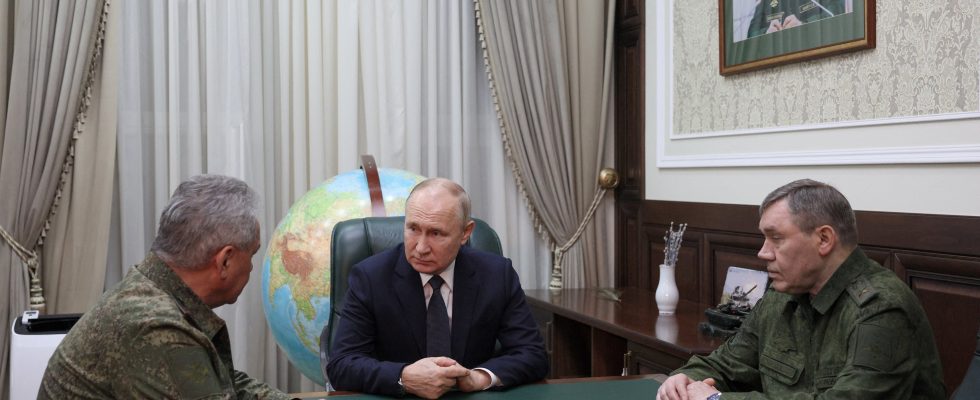Since October 7, the war in Ukraine has been forgotten. The unspeakable savagery of the pogrom committed by Hamas and the violence of the Israeli response in Gaza have placed the world in a state of astonishment, and put into perspective the attention paid by Europeans to the front lines on their continent. At a time when public opinion is turning away from Ukraine, where its chief of staff Valeri Zalouzhny recognizes the “impasse” in which the Ukrainian counter-offensive finds itself, due to lack of adequate and sufficient Western support, Ursula von der Leyen conveniently made the trip to Kiev. The President of the European Commission came in person to bring President Volodymyr Zelensky the only good news in recent weeks: the Commission’s recommendation of the procedure for Ukraine’s admission to the EU, which will be examined by the leaders of State and Government in December.
Certainly, Vladimir Putin has already lost the battles which initially justified his invasion of Ukraine: NATO, which he claimed against all probability threatened Russia, has expanded to include Sweden and Finland. Ukraine, to which he did not recognize any national identity other than Russian and whose attraction towards the Western camp he could not bear, is now more European and more hostile to Russia than ever. Whatever the outcome of the fighting and the state of the country that he has been trying to put under his thumb and crush for a year and a half, he will not win these battles. But he is on the verge of winning another, thanks to the Middle East which resurfaces at the right time for him, like an unexpected gift.
The war in Ukraine and that in Israel are two parts of the same conflict, two fronts that feed each other. Firstly because the second diverts the attention of public opinion from the first and puts at risk the financial and military support of the West vis-à-vis Ukraine, as evidenced by the budgetary battle underway in the American Congress . Then because the Israeli bombings on Gaza, although in response to the pogrom of October 7, offer Putin the best (false) pretext to justify his war crimes and his invasion of an independent state. He can activate at will the always effective argument of “double standards” to send the West back to its political and moral contradictions.
Finally and above all, because Vladimir Putin is pursuing two parallel objectives, which have never been so within his reach thanks to this second Middle Eastern front. In addition to the conquest of Ukraine, the centerpiece of the reconstitution of the great empire to which he aspires, the Russian president aims, with his Chinese counterpart Xi Jinping, to establish a “new world order” aimed at reducing Western influence in the world, for the benefit of the Russian and Chinese empires and a global South in revolt against the international system born from the Second World War. By not condemning Hamas, whose leaders he had received in Moscow, Putin thus performed an about-face vis-à-vis his old ally Benjamin Netanyahu, with whom he shared a similar conception of illiberal democracy and suprematism. white (Judeo)-Christian. The opportunist seized the great opportunity offered to him to become, by taking the side of the Palestinians, the standard-bearer of the anti-Western family.
The nature of the Israeli response makes its task easier. Western leaders are weakened by their support for a military operation which, in the name of self-defense, resulted in a humanitarian catastrophe for thousands of Palestinians and sparked indignation around the world. In Europe, the war in the Middle East has direct repercussions, as the Palestinian question is so passionate and catalyzes divisions. The same Europeans, who showed exemplary unity in their solidarity with kyiv, are now discrediting themselves by their inability to display a clear common position on Israel and Gaza.
A man is amused by their rifts and the interaction of the two wars: Vladimir Putin. He is patient. He knows that the 2024 American election will be the moment for the real question: in the event of the election of an isolationist Republican president, what would be Europe’s capacity to take over from America? Will it give Ukraine the means to triumph over this imperialist dictator who will not stop in Donbass?
*Marion Van Renterghem is a senior reporter, winner of the Albert-Londres prize and author of “The trap of Nord Stream” (Les Arènes)
